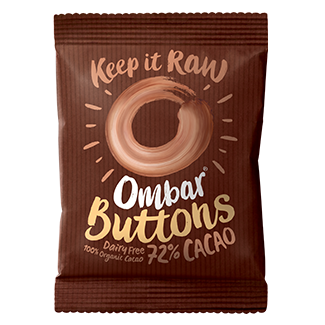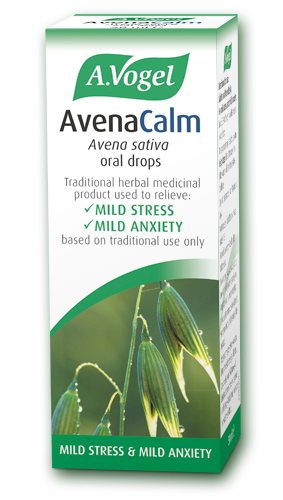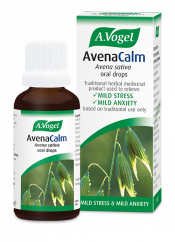Anxiety is useful when it comes to dangerous or threatening events – like being attacked by a bear – unfortunately though, it’s not so useful when it comes to situations that require a steady focus and cognitive reasoning – such as during exams! Assessment environments can often trigger a worry response that can interfere with our performance on cognitive and intellectual tasks which means if we fall prey to these feelings we probably aren’t performing as well as we would have without the added assessment component.
Preparation – plan ahead so you don’t panic instead!

When it comes to dealing with exam-related anxiety preparation is key! Create a study plan that breaks each area of content down into manageable pieces. Use past performances to see areas that you could improve on and progress from.
Practicing past exam papers can also be really beneficial as you can identify what sort of questions and content you can expect in the exam. You can also create exam-like conditions that you will be in to give you an idea of timing and a practice at the general sort of environment you will be in.
Try to learn and incorporate memory techniques into your studying such as acronyms, sayings, imagery, colours and trigger words to help you remember things if your mind goes blank.
Take plenty of breaks while you study, I know that this may be easier said than done, particularly if you are feeling anxious about an exam, but actually, taking regular breaks could help you to remember more and use your study time more wisely.
As much as we might want to, our brain can’t focus intensely on one thing over a long period of time. Generally our attention span lasts until around 45 minutes before we begin to zone out.1 To optimise your studying try to keep procrastination to a minimum and work in smaller 40 or 45 minute chunks that are alternated with 15-20 minute breaks.
Keep your leisure and study time separate if you can, this means when you study commit fully to studying without distractions and when you take a break, try not to focus or worry about studying.
A good night’s sleep means you won’t have to cheat!

Your brain needs sleep in order to recharge itself for the next day, sleep deprivation can cause anxiety so try to commit to at least 8 hours of sleep every night. Exam nerves and worry can often get in the way of a good night’s sleep so getting a good bedtime routine sorted can help. Begin to wind down around an hour before you plan on going to sleep.
Separating your work and sleep areas can help; if you spend time studying on your bed it can become easy to associate that area with stress and anxiety caused by studying.

Separating these areas will prevent negative emotional association with your sleeping area.
If you begin to struggle getting to sleep I’d suggest trying a natural herbal sleeping aid such as Dormeasan which doesn’t have any of the drowsy side-effects that are associated with sleeping pills. For more tips on how to relax before bed check out my blog on switching your mind off at night.
Exercise anxiety away
 Regular exercise helps to boost energy levels, reduce stress and helps to give us a sense of mental clarity. It also has a positive impact on academic performance, productivity, sleep, depression and anxiety. Exercising releases feel-good chemicals such as endorphins and serotonin which help to reduce anxiety and lift our mood.
Regular exercise helps to boost energy levels, reduce stress and helps to give us a sense of mental clarity. It also has a positive impact on academic performance, productivity, sleep, depression and anxiety. Exercising releases feel-good chemicals such as endorphins and serotonin which help to reduce anxiety and lift our mood.
Exercising has a whole bunch of health benefits and even a little goes a long way, in fact, according to the University of Edinburgh, even just 10 minutes of exercise can help increase our mental alertness, energy and mood.2 If going to the gym or an exercise class really isn’t your thing why not try Earle’s easy 10 minute workout for beginners which has handy videos that you can follow?
Use food to fuel your brain

Food fuels your brain power, so it’s important to try to eat the right kinds of foods that will help your mood as well as your ability to concentrate. Highly processed, sugary foods are normally our go-to study snacks but these aren’t the best for our brain power. They cause sugar-highs followed by sugar-lows which make it difficult to remain motivated and focused on the task at hand.
Brain-boosting super snacks
Blueberries
Studies have shown that blueberries can help boost concentration and memory for up to 5 hours after eating them!3 Blueberries are rich in antioxidants, vitamin C and E and flavonoids. The flavonoids present in blueberries are thought to activate an enzyme which helps boost concentration and memory by stimulating the flow of blood and oxygen to your brain.
Avocados
Avocados are full of good fats and nutrients that can help to improve the health of our brain. 75% of avocados are made from monounsaturated fats, this fat aids in the production of acetylcholine which is a chemical in the brain responsible for memory and learning. Avocados also contain high amounts of an amino acid called tyrosine which is used to help make proteins and brain chemicals such as dopamine which helps us to stay motivated and alert.4
Water
Although not a food, water is essential to our ability to concentrate; it is a vital part of all of our bodily functions so it is important that we keep hydrated particularly when it comes to exams. Lack of water can cause brain fatigue, headaches and irritability as well as problems with focus and attention. Aim to drink between 8 and 10 glasses of water daily to keep yourself hydrated. Why not try making your water a little bit more exciting by infusing it with mint, cucumber, strawberries or lemon? If you need some ideas check out our lemon, mint and cucumber detox water recipe to start you off!
Dark Chocolate
 Now when I say chocolate I mean dark chocolate, not white or milk chocolate which is often packed with sugar and is of little nutritional value to us. When it comes to dark chocolate I’d recommend Ombar’s 72% Raw Dark Chocolate Buttons which contain an added probiotic for gut health and are perfect for snacking whilst studying.
Now when I say chocolate I mean dark chocolate, not white or milk chocolate which is often packed with sugar and is of little nutritional value to us. When it comes to dark chocolate I’d recommend Ombar’s 72% Raw Dark Chocolate Buttons which contain an added probiotic for gut health and are perfect for snacking whilst studying.
For those of you who like a bit more flavour with their chocolate Ombar have lots of tasty flavours to choose from including blueberry and acai berry, coconut and strawberry, all of which can be found with our friends over at Jan de Vries.
Dark chocolate contains magnesium which helps to regulate our mood, prevent fatigue and to de-stress. It also promotes the release of endorphins and serotonin which help make us feel good and lift our mood. Try not to be tempted into eating colossal amounts of it though, moderation is still important, but, if you’re a chocolate lover like me you’ll be pleased to know that dark chocolate is actually beneficial for focus and mood!
Use relaxation techniques
Behavioural interventions such as breathing techniques or mindfulness can help to neutralise any negative or anxious thoughts that can come up during an exam. Relaxation techniques can help reduce stress and worry and help to bring you back to the present.
It’s important to remember to focus on the task at hand, not on what this might mean in terms of grades or results or what-if scenarios. If you begin to feel overwhelmed by exam stress it’s always good to talk things through with somebody else, whether it’s friends who are on the same boat as you, family who can give you some emotional support, or lecturers who can offer a bit of extra guidance letting off steam and telling people how you feel can help to dissolve some of your anxiety.
Use herbal remedies to take the pressure off
 If you need a helping hand overcoming exam-induced anxiety herbal remedies are a great option. Our AvenaCalm is a licensed herbal remedy containing organically sourced Avena Sativa which can help to soothe symptoms of emotional distress and mild stress and anxiety.
If you need a helping hand overcoming exam-induced anxiety herbal remedies are a great option. Our AvenaCalm is a licensed herbal remedy containing organically sourced Avena Sativa which can help to soothe symptoms of emotional distress and mild stress and anxiety.
Turn that frown upside down!
Lastly, it’s always important to remember perspective when it comes to exams – they don’t last forever so try not to let anxiety take over. Looking after your mental health is extremely important so if you feel overwhelmed seek out a bit of extra help. Although studying should be near the top of your priority list remember to factor in some time for fun too!
1 https://www.unh.edu/healthyunh/blog/2012/01/brain-break-how-study-smarter
2 https://www.ed.ac.uk/sports-union/stressbusters/why-exercise-during-exams
3 http://ethos.bl.uk/OrderDetails.do?uin=uk.bl.ethos.553161
4 https://psychologycompass.com/blog/eating-your-way-to-focus-and-concentration/








